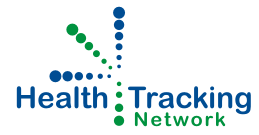Tracking is essential for evaluating any strategies you use to improve your health and fitness. Trackers
are also useful simply as records of your health and fitness.
Furthermore, tracking may improve some aspects of health and fitness. In rigorous studies,
participants randomly assigned to monitor their weight,1,2
physical activity,3,4
blood sugar (glucose),5,6,7 or
blood pressure8,9 showed a little more improvement than participants
who did not monitor. That is, just by tracking a variable, you may be more likely to improve on that variable than if you didn't
track it. Tracking may improve medical conditions the most when patients and their healthcare providers adjust treatment
and behavior based on the tracking data.10
Back to Health Info
References (links open new windows):
- Wing RR,
Tate DF, Gorin AA, Raynor HA, Fava JL. A self-regulation program for maintenance of weight loss. New England Journal of
Medicine. 2006;355:1563-71.
- Gokee-LaRose J, Gorin AA,
Wing RR. Behavioral self-regulation for weight loss in young adults: a randomized controlled trial.
International Journal of Behavioral Nutrition and Physical Activity. 2009;6:10.
- Noland MP. The
effects of self-monitoring and reinforcement on exercise adherence. Research Quarterly for Exercise and Sport. 1989;60:216-24.
- Izawa KP, Watanabe S, Omiya K,
Hirano Y, Oka K, Osada N, Iijima S. Effect of the self-monitoring approach on exercise maintenance during cardiac rehabilitation: a randomized, controlled trial.
American Journal of Physical Medicine and Rehabilitation. 2005;84:313-21.
- Poolsup N, Suksomboon N,
Rattanasookchit S. Meta-analysis of the benefits of self-monitoring of blood glucose on glycemic control in type 2 diabetes patients:
an update. Diabetes Technology and Therapy. 2009;11:775-84.
- Clar C, Barnard K,
Cummins E, Royle P, Waugh N, Aberdeen Health Technology Assessment Group. Self-monitoring of blood glucose in type 2 diabetes:
systematic review. Health Technology Assessment. 2010;14:1-140.
- St John A, Davis WA, Price CP,
Davis TM. The value of self-monitoring of blood glucose: a review of recent evidence. Journal of Diabetes and Its
Complications. 2010;24:129-41.
- Bray EP, Holder R, Mant J,
McManus RJ. Does self-monitoring reduce blood pressure? Meta-analysis with meta-regression of randomized controlled trials.
Annals of Medicine. 2010;42:371-86.
- Glynn LG, Murphy AW,
Smith SM, Schroeder K, Fahey T. Self-monitoring and other non-pharmacological interventions to improve the management of hypertension
in primary care: a systematic review. British Journal of General Practice. 2010;60:e476-88.
- Kolb H, Kempf K,
Martin S, Stumvoll M, Landgraf R. On what evidence-base do we recommend self-monitoring of blood
glucose? Diabetes Research and Clinical Practice. 2010;87:150-6.

